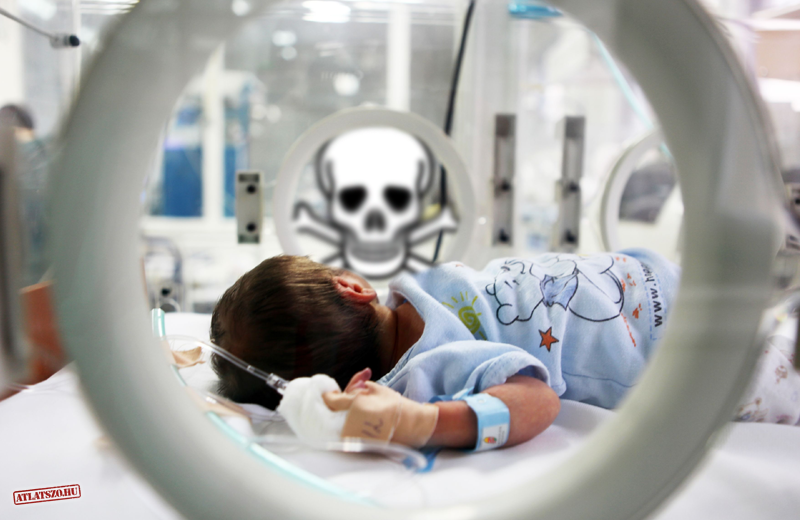The https://english.atlatszo.hu use cookies to track and profile customers such as action tags and pixel tracking on our website to assist our marketing. On our website we use technical, analytical, marketing and preference cookies. These are necessary for our site to work properly and to give us inforamation about how our site is used. See Cookies Policy
Atlatszo.hu releases investigation records on infant deaths
Atlatszo.hu has won a legal battle over the publication of documents concerning an investigation into the deaths of nine premature babies born at a hospital in northern Hungary. While the relevant ministry wanted to withhold the records of the investigation, which details the bacterial epidemic that caused the fatalities, the supreme court ruled in our favour and ordered the release of the information.

On August 8 2013 the head of a children’s hospital in northern Hungary’s Borsod-Abaúj-Zemplen county reported an outbreak of an epidemic at a ward for premature babies. In just four days, five infants died. The final death toll, between August 2 and August 10, reaching a total of nine. At the time, the prime minister ordered a full investigation and criminal proceedings were also launched.
The state health service, ANTSZ, determined the ward had experienced an outbreak of the Klebsiella pneumoniae bacterium, and the deaths had been due to the circulatory and respiratory issues resulting from the infection. While it is still unclear as to how the ward was contaminated, the documents show that the bacterium in question is widespread.
Following the outbreak, Atlatszo.hu put in a request to the Human Resources Ministry to obtain details of the investigation – a request which would eventually lead to a protracted court battle over whether the information should be made public. The original verdict instructed the ministry to release the documents, redacting all personal information. However, upon appeal the courts sided with the ministry, accepting the argument that, as it was being treated as a criminal matter, the records should be prevented from entering the public sphere. However, the Kuria, Hungary’s supreme court, reaffirmed the first verdict – stating that although a criminal investigation is ongoing, publishing the records remains in public interest.
Atlatszo.hu has now obtained and published the relevant materials.
The investigation discovered widespread contamination of the bacterium responsible for the infant deaths, and that it could have been introduced into the ward by staff, parents or via contaminated medical equipment used to care for the infants. The report shows that following its detection, the hospital took the necessary measures to contain the outbreak, adding that the hospital had been struggling with staffing issues and that the infection occurred at a time when workloads were particularly high.
The ANTSZ report also included a number of relevant statistics regarding premature births. It shows that between 1995 and 2011, 8-9% of Hungarian babies were born prematurely, with the figure in Borsod-Abauj-Zemplen slightly higher at 10-12%. Based on a survey across 32 hospitals in 13-counties, the survival rate for prematurely born babies weighing less than 1000 grams is 75%.
In Hungary, there were 14,713 pregnant mothers in 2012, 56% of which – 8,237 women – were considered at risk in some way. In Borsod-Abauj-Zemplen, 60.9% of the total 9,463 expectant mothers experienced pregnancy complications. This included eight of the nine mothers whose premature babies later died during the outbreak. It was also determined that eight out of the nine women had medical conditions that increased the risk of complications, such as previous abortions, kidney stones or hormonal issues. The report also noted that five of the pregnant women smoked, while two of them lived in homes which lacked basic utilities.

